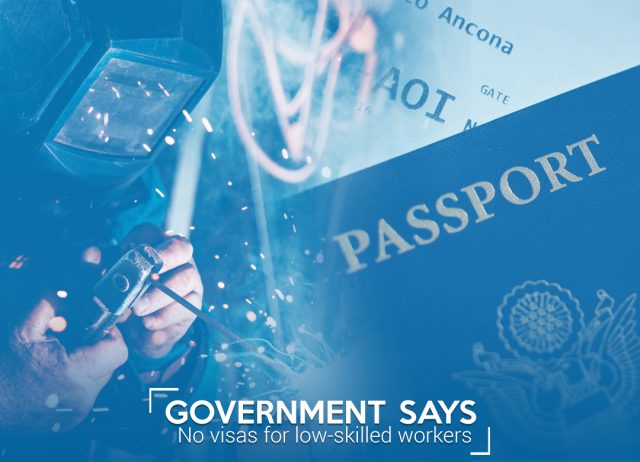Low-skilled workers and labor will not be able to attain visas under post-Brexit immigration plans announced under the new government. The new setup is pushing employers to move away from cheap labor from Europe and encouraging the businesses to invest in existing employees and automation systems. The Home Office was reported saying that EU and non-EU citizenry coming to the Kingdom would get equal treatment after the conclusion of UK-EU free movement on Dec 31, 2020.
Labour party didn’t welcome the move and viewed that hostile environment will make it hard to attract workers. But Home Secretary Priti Patel was confident in her remarks and said that the new system would bring brightest and the best to the Brexiters.
Attending BBC Breakfast, Ms. Secretary revealed that the government wants to encourage people with the right talent and reduce the levels of people coming to the United Kingdom with low skills. She went on to add that the system would make sure that we have a high-skilled, highly trained and highly productive economy in the future. The administration maintains that it is looking to reduce overall migration to the country and is targeting a points-based immigration system which it promised in its election manifesto.
Under the new plan, overseas workers who desire for a UK work permit would have to be affluent in English and have the offer of a skilled job to apply for and that too with an approved sponsor in the Brexitified Kingdom. An applicant will get 50 points if he/she can fulfil these criterions.
On the whole, immigrants would have to secure 70 points to be able to work in the United Kingdom, with points also being awarded on the basis of qualifications, pay package and working in a sector with shortages. However, the government made it clear that it would not introduce new cop of lower-skilled workers urging business to adapt and adjust to end the free movement between European Union and United Kingdom.
“It is important employers move away from a reliance on the UK’s immigration system as an alternative to investment in staff retention, productivity and wider investment in technology and automation,” it said.

Instead it said the 3.2m citizens from the Union who have applied to extend their stay in the country could fulfill the needs of labor market demands. The government also unveiled the quadrupling of the new plan for seasonal workers in agriculture to 10,000 as well as youth mobility arrangements which would allow 20,000 young people to reach the Kingdom each year.
While Confederation of British Industry endorsed some the schemed proposals, it however, remarked that some firms would be left wondering how will they recruit the people needed to run their businesses.
The business lobby group’s director general, Carolyn Fairbairn reacting to the newly introduced scheme: “Firms known that hiring from overseas and investing in the skills of their workforce and new technologies is not an ‘either or’ choice – both are needed to drive the economy forward.”
Attending Radio 4’s Today program, Madeleine Sumption, director of the University of Oxford’s Migration Observatory hinted that it would not be an easy transition to the new mechanism for employers who over the years have been reliant on the low wage human resource.
“Some employers will be able to adjust maybe by introducing more labor-saving techniques, such as machinery. In some cases that won’t be feasible and for them the questions are: can they find other source of workers; will they produce less, or will they go out of business?”
The Royal College voiced their concerns over the newly announced measures and maintained that new mechanism will not meet the health and care needs of the population. Unison assistant general secretary, Christina McAnea described the scheme as an absolute disaster for the care sector. Disappointed by the government’s decision, the UK Homecare Association pointed to the lack of provision for low-scale workers in the new plans and termed it irresponsible.
“Cutting off the supply of prospective care workers under a new migration system will pave the way for more people waiting unnecessarily in hospital or going without care,” added a statement from UK Homecare Association.
Similar concerns were raised by National Farmers’ Union President Minette Batters who said that proposals failed to recognize British food and farming’s needs. Food and Drink Federation also seemed bewildered by the decision and raised concerns about the future of bakers, meat processors and those involved with the production of cheese and pasta who according to them will not qualify under the reviewed plans.















